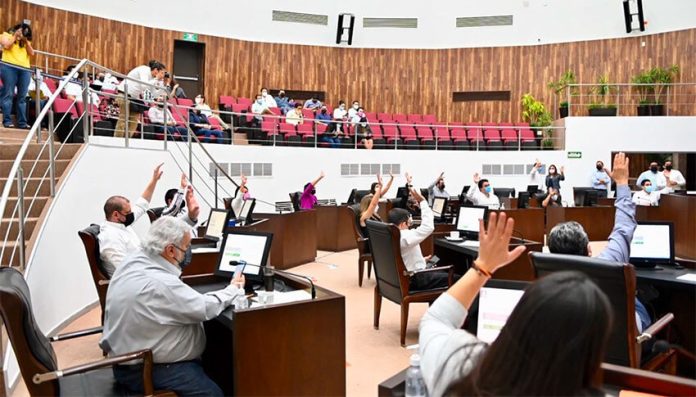Yucatán is the latest state to fully legalize same-sex marriage after the state’s Congress voted unanimously on the issue on Tuesday.
The Congress approved modifications to three secondary laws in the Civil Registry Law and three in the Family Code meaning citizens can now marry partners of the same sex without making any legal challenge.
Same-sex marriage was first approved in Yucatán on 25 August, but lawmakers were given 180 days to make the necessary modifications. They achieved it in 188 days.
Previously, same-sex couples had only been able to marry after filing for a costly court injunction.
The Citizens’ Movement deputy who presented the initiative in December, Vida Gómez, said there was still a lot of work to be done to advance human rights, but the legalization of same sex marriage was part of that long running battle.
A National Action Party (PAN) deputy, Manuela Cocom Bolio, said the reforms showed the openness and desire for cooperation among the 25 deputies beyond their partisan positions.
The Supreme Court ruled in 2015 that civil codes defining marriage as between a man and a woman or for the sole purpose of procreation were unconstitutional. But some states have still not changed their laws, meaning that in order to get married within their borders same-sex couples must apply for a marriage license with their local civil registry, be rejected and then file for an injunction and wait for their case to move through the system.
Mexico City was the first entity to recognize gay marriage, doing so in 2010. The states where same-sex marriage has not been fully legalized are Durango, México state, Guerrero, Tabasco, Tamaulipas and Veracruz. The practice is legal in 26 states.
With reports from El Universal
